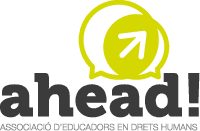This post is part of the group contribution and best practices shared during the Euro-Mediterranean Training Course: Youth Work Preventing Violent Extremism, implemented by the Association of Human Rights Educators AHEAD from the 14th till the 21st October 2018 in Comarruga (Tarragona).
Who are we ?
Inno-PEACE (Innovators for peace) is a young non-governmental Tunisian association founded in 2016, aiming at helping young people in strengthening their capacities and roles in the development of a cohesive and tolerant society that respects the values of human rights, peace, and democracy.
Background?
According to recent studies as to how prejudice emerges and spreads through society, the human brain is predisposed to learn negative stereotypes and to put people into different categories. This is where Inno-PEACE came up with the idea of introducing the concept of the Living Library in the Tunisian society. After the success of the Living Library, Inno-PEACE continued spreading the concept and met the International Human Library Organization. Until now, we have organized 9 Human Libraries in 4 different cities (Tunis the capital, Sousse, Monastir and Sfax).
Our goals ?
Our project mainly aims at challenging stereotypes and prejudices, and preventing violent extremism, by using a one-to-one or a group conversation with the living book in order to get to know the person beyond the labels we give him/her.
"It's almost impossible to deny a person's humanity after you've shared a cup of coffe with them."
How?
The Living Library basically functions as any regular library; It has books, readers, librarians.. Readers get into the library, register, go through a catalogue, choose a book and borrow it in order to read it.
The main difference is that Books are actual people.
Who are the books?
They are people who had experienced, or are most likely to experience, discrimination based on their color, life choices, past, disabilities or their sexual orientations.
The concept of the Living Library is to put face to face two individuals, one would be a living book (with a title) and the other would be a reader. Together they can discuss and interact on the book’s story.
Venturing into the Living Library, the readers are invited to discover the story of the Living Book they "borrow", learn from it and challenge stereotypes and prejudices. In fact “we cannot judge a book by its cover”.
Target group?
The Living/Human Library targets everyone, but mainly young people for they represent a suitable and fertile ground to violent extremism and might be easily targeted to get involved in extremist actions. That’s why we started the Human Libraries in schools project.
Outcomes?
The paramount outcome is to establish a culture of peace and tolerance at the individual and group level and thus, promoting the culture of human rights and strengthening the capacities of the most vulnerable groups to uphold their rights.




